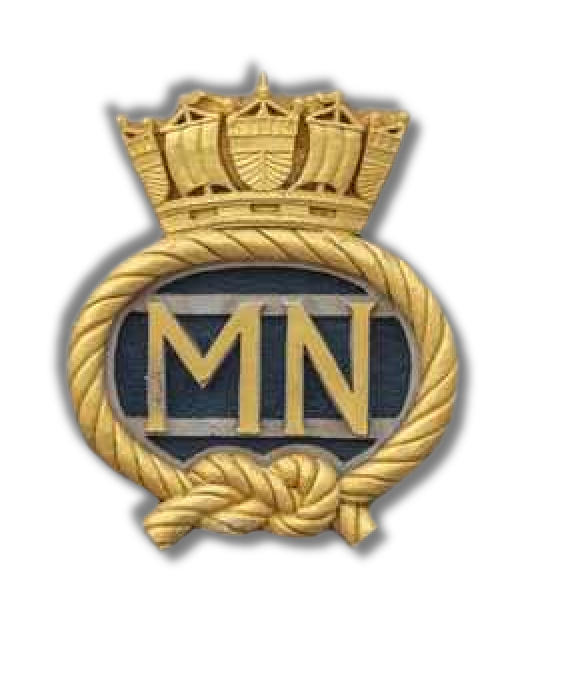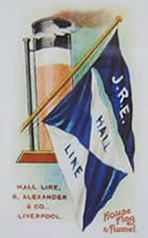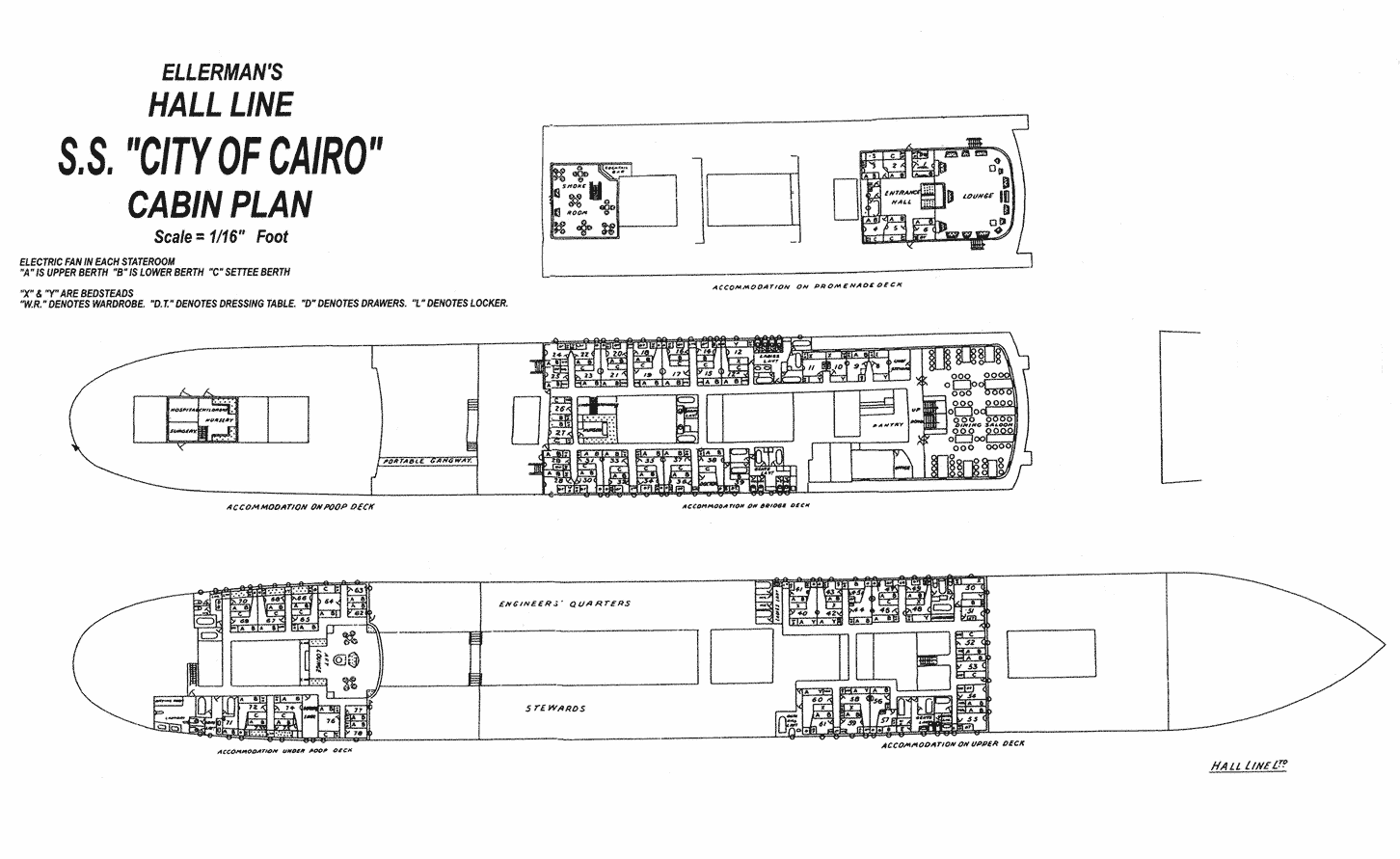Mrs. Margaret Gordon's Letter
This is a copy of a letter sent to Maude Humphreys, the mother of Second Radio Officer Thomas Alfred Vaughan Humpreys on the 24th October 1943 by Margaret Gordon. Sparkie Humphreys, No.4 lifeboat, died at sea on 18th December 1942.
I am very grateful to , for permission to show it on this site. The letter was given to Frank's mum by Maude in the last months of her life. Frank says: "After my mum died I kept the letter, not knowing why, but, with a feeling that it might be of value to someone. I Googled Margaret Gordon and arrived at your website, as I've been reading I have been overwhelmed in so many ways."
Mrs Gordon was the only survivor of lifeboat No.4 and wrote many such letters to the relatives of those who did not survive. In Washington D.C., in 1944, Mrs. Gordon was awarded the BEM(Civ) for her courage and service in the lifeboat.
Dear Mrs. Humphreys,
I am writing to you because I feel that you might like to hear from me - I am now the only survivor of the lifeboat in which your son lost his life last December. I hesitated for a time because I feared that a letter of this kind might only upset you - but now I feel that perhaps it might help you to know a little about what happened.
When our ship was torpedoed "Sparkie" (as we called him) was on watch and stayed on board till the last possible moment, sending off distress signals. He was amongst the last to leave the ship with a number of other men and the Captain in a half submerged lifeboat. This boat was upset when the ship sank, but a number of them were picked up by other boats. The next day Sparkie was transferred to our boat in exchange for some of the women and babies who could not remain because ours was the smallest boat and Knocker Whyte the officer in charge needed help in sailing it.
For the first few weeks Sparkie was a tremendous help to us. He was cheerful and resourceful and helped to keep our spirits up, and he was such an expert with the signalling torch at night. It was always very difficult to keep in touch with the other boats at night and eventually we got separated from the boat that carried the sextant, and after about ten days we were sailing the ocean alone.
We had plenty of food on the boat but very little water so we could only issue a small ration each day. Towards the end of November the strain and monotony began to tell on some of the men and one or two gave up all hope of being saved. I don't think Sparkie ever did that but he began to grow weaker physically, and for the last couple of weeks he lay under the cover in the bow and I think he slept a great deal of the time. He seemed to find it difficult to eat, in spite of our efforts to help him by giving him extra water and mixing the dry rations with water. He even found it difficult to take the Horlicks "milk" and pemmican "soup" that we mixed up for sick men.
I used to rub his legs and feet every day and Knocker did all he could to help him end keep him cheerful. He made him comfortable every night with life jackets to lie on and blankets over him. We gave him a little brandy from time to time to keep him going, but it all seamed of no avail and he slipped away on Friday 18th December. Poor old Knocker was terribly upset, as he and Sparkie had been shipmates for some time and we had hoped to pull him through.
Sparkie often spoke of you and his family and his fiancèe in South Africa. He wrote a message to you in his notebook and left it in his bag with his other papers and a gold bracelet to be sent to you. One of the last things he wrote in his diary - and which I happened to notice one day as I crossed off the date - was this sentence - "I have made my peace with God".
Knocker Whyte had all Sparkie's things with him and was taking them home to you, but as you may have heard, he was lost with the ship which was carrying him home to England. What a tragedy it is for the nation to lose so many of its young and gallant men.
This letter goes to you Mrs. Humphreys with my deepest sympathy and in the hope that it may comfort you a little. Don't feel that you have to answer it if you feel you would rather not, but if there is ever anything I can do for you, please let me know.
From yours very sincerely,
MARGARET GORDON.






